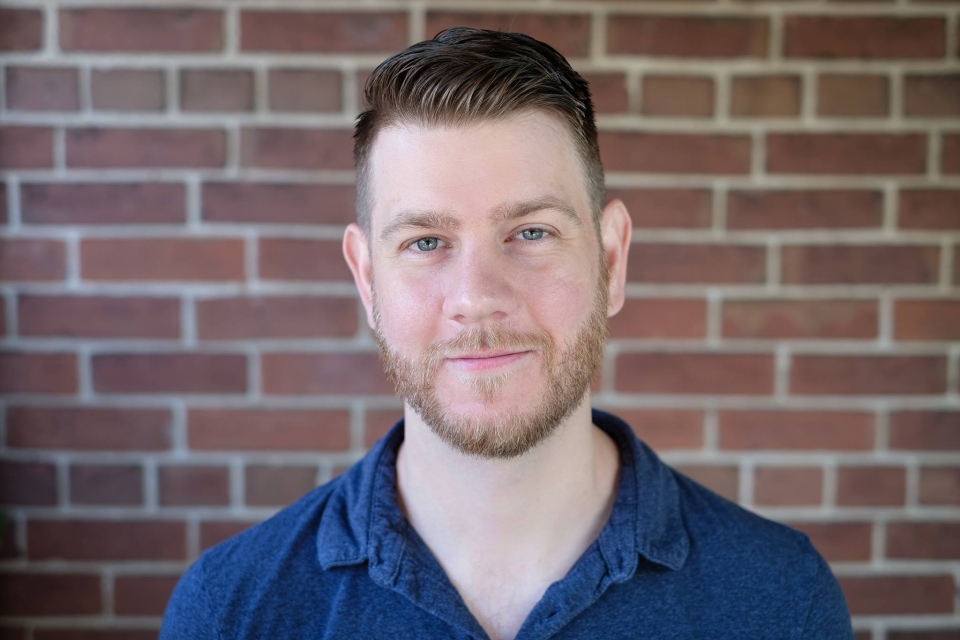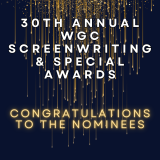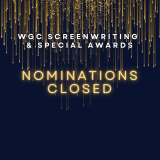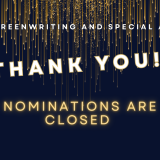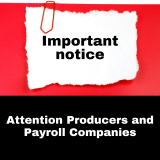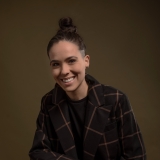By Thomas Conway
My heart was pounding and I was drenched in sweat. I had just made yet another obvious spelling error for the entire writers’ room to see. It was impossible to miss — marked by that unmistakable red squiggly line and projected on a giant monitor at the front of the room. It was only the second week of my first story coordinator job, and my secret was seeping out of the cracks created by misspelled words and bad grammar.
I tried to make corrections, using spellcheck as fast as I could, but the room of comedy writers kept pitching joke after joke, and I fell laughably behind. With stomach-turning shame, I forced out some words, timidly asking the room to stop so I could fix my mistakes. I felt like I was back in grade two, forced to miss recess so I could finish writing down what was on the chalkboard.
As I corrected simple words that I knew were misspelled as I typed them, one of the writers let out a quiet snicker. My face went red. My embarrassment then gave way to boiling anger.
“Just so you all know, I’m dyslexic!” I barked.
The room fell uneasily silent until my showrunner, in an empathetic tone and with perfect comedic timing said, “Yeah, we know.” It broke the tension and the room exploded into hysterics. Even I couldn’t help but laugh.
Disclosing my disability fills me with tremendous anxiety, forged by painful memories of humiliation and failure associated with something that — try as I might — I can never change. When I utter the words, “I am dyslexic,” I never know how people will respond. Sometimes, it goes great. Accommodations are made and simple understanding is given. Sometimes, it’s waved away as if I’m making it up. And sometimes, people just stare silently at me, as if it’s not humanly possible for a professional writer to be dyslexic. But the truth is, I became a screenwriter because of my disability, not despite it.
Growing up, watching TV was the ultimate refuge for me -- a special place removed from the anguish of reading and writing. I spent hours upon hours devouring shows, falling utterly in love with the craft of storytelling. Eventually, with the support of friends, family, and oh so many teachers, I gained the courage to start writing my own scripts. Dreaming that with enough hard work, luck and countless revisions, those scripts would become a gateway into a world I had been longing to join.
I have never disclosed my disability before a job interview. I also didn’t mention it before I signed with my agent. It’s not that I’m ashamed of it — at all. But I did fear how it would affect the way others saw me. That by revealing who I truly am, I would suddenly become “less than” someone else.
Can my disability be a challenge? Of course. But it has also motivated me to hone my storytelling skills, learn innovative coping techniques, and see the world in ways only a neurologically diverse person can. That’s the strength of disability and sadly those living with it are grossly underrepresented in our guild and industry.
The recent WGC Equity, Diversity and Inclusion report indicated that only 1% of members working in TV self-identify as living with a disability. This is an alarming statistic. People with disabilities make up 20% of the population; the largest minority group in the country. This inequity has powerful repercussions both in what ends up on screen and how writers living with disabilities feel within the writing room. Topics surrounding disability are either misrepresented, or more likely, erased from the media altogether.
The need for a safe and understanding writing space is vital as a first step to help fix this ongoing problem. Writers need to be able to comfortably and confidently disclose their disabilities. But more often than not, the internal biases and ignorance of others prevent writers living with disabilities from being so vulnerable.
This isn’t an indictment of anyone or some kind of virtue signaling. I know I haven’t always been considerate of the emotional magnitude of what’s said in a writers’ room, making light of or dismissing things that in retrospect deserve deep empathy and consideration. But I also know that progress is not just possible, it’s necessary. So, despite past mistakes, missteps, and oversights, it's time that we engage the complexity of disability and disclosure with honesty and humility.
People living with disabilities cross the spectrum of age, race, gender and sexual orientation. They are also the only diverse group anyone can become a part of at any point in their lives. Disability is an essential part of our shared humanity, and excluding its representation robs us of a wealth of important, powerful, and profoundly entertaining stories that need to be told.
An award-winning writer and comedian, Thomas Conway has written for The Beaverton, Odd Squad: Mobile Unit, Endlings, and most recently the hour-long family series Ruby and the Well.
